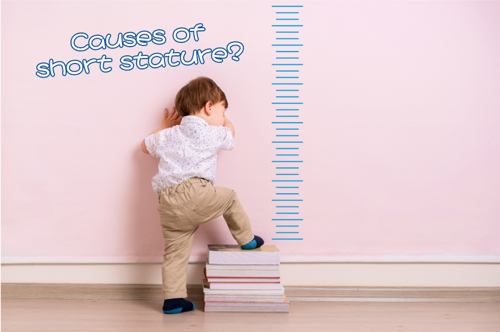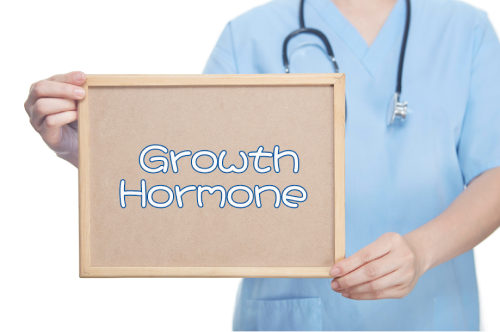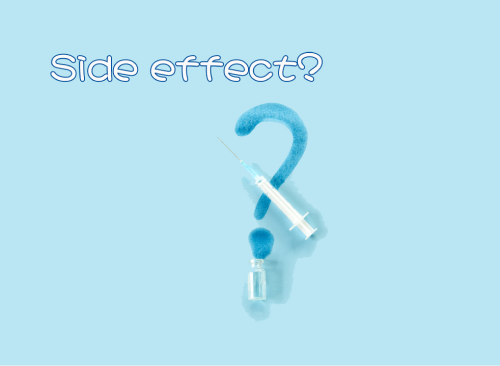Short stature and growth hormone treatment
As parents, we often want our child to grow taller and worry about short stature. Short stature generally describes a condition in which a child’s height is well below the mean of his or her peers; it means the height is below that of the shortest 3-5 percent of children of the same age and sex. Normally, children grow fast in the first two years of life. Their growth then slows down until they go through puberty with rapid increase in height again. Final height is reached when the growth plates within bone fuse which is around bone age of 14 years in girls and 16 years in boys. If parents worry their child is short, the child should be seen by paediatric endocrinologist or paediatric doctor for timely diagnosis and treatment. Height cannot be gained further once the growth plates have fused.

What are the causes of short stature?

There are many causes of short stature which include
- genetic
- constitutional delay in growth and puberty
- idiopathic short stature with no known cause
- small for gestational age without catch-up growth
- endocrine problems like growth hormone deficiency, hypothyroidism and Cushing syndrome
- skeletal dysplasia
- metabolic bone disease like rickets and osteogenesis imperfecta (brittle bone disease)
- chronic diseases because of poor nutritional intake, increase energy requirement, inflammatory cytokines, use of steroid, etc.
- chromosomal disorders like Turner syndrome, Russell Silver syndrome and Prader Willi syndrome.
How to determine the cause of short stature?
Doctor will assess the child based on the medical history and physical examination. Body weight and height will be measured and plotted on the growth chart. The height of the child is compared with that of the parents and previous growth record is reviewed for growth velocity. Blood testing and X-rays will be performed to determine the cause of short stature. Children with growth hormone deficiency may need growth hormone provocative test for diagnosis. Magnetic resonance imaging (MRI) of the brain and pituitary should be performed in any child diagnosed with growth hormone deficiency to determine the underlying cause.
What are the red flags for short stature?
Short stature is particularly worrying if
- severe short, well below the 3rd percentile
- outside the target height range estimated from parents’ height
- no catch-up growth after 2 years of age for those with small for gestational age
- abnormal growth velocity with height crosses 2 major percentile lines
- has symptoms and/or signs of chronic illness
- bone abnormalities
- dysmorphism
Is there any treatment for short stature?

Treatment depends on the underlying cause of short stature. Thyroid hormone replacement can be used to treat hypothyroidism. Growth hormone can be used if it is caused by growth hormone deficiency, idiopathic short stature, small for gestational age without catch-up growth, Turner syndrome, Prader Willi syndrome, SHOX deficiency and chronic renal failure. Growth hormone treatment is given subcutaneously before sleep every day, the process of injection is very simple. In the body, growth hormone stimulates growth, cell reproduction and height gain.
A child with idiopathic short stature may gain 4-10 cm with growth hormone treatment over several years. However, response to growth hormone treatment in height outcomes can be very variable. Generally, the younger the child when growth hormone treatment is initiated, the better is the response and final height gain.
What are the side effects of growth hormone treatment?

Growth hormone is relatively safe and side effects are not common. However, if your child has headache, hip pain or walk with abnormal gait, you should consult your doctor for possible adverse effects of treatment. Rarely, benign intracranial hypertension (pseudotumour cerebri), slipped capital femoral epiphysis and worsening of existing scoliosis may occur. Relatively more common side effects are oedema, local reaction to injection, joint and muscle pain. Your doctor will also monitor your child’s IGF-1 level, fasting glucose, HbA1c, thyroid function and blood pressure.











